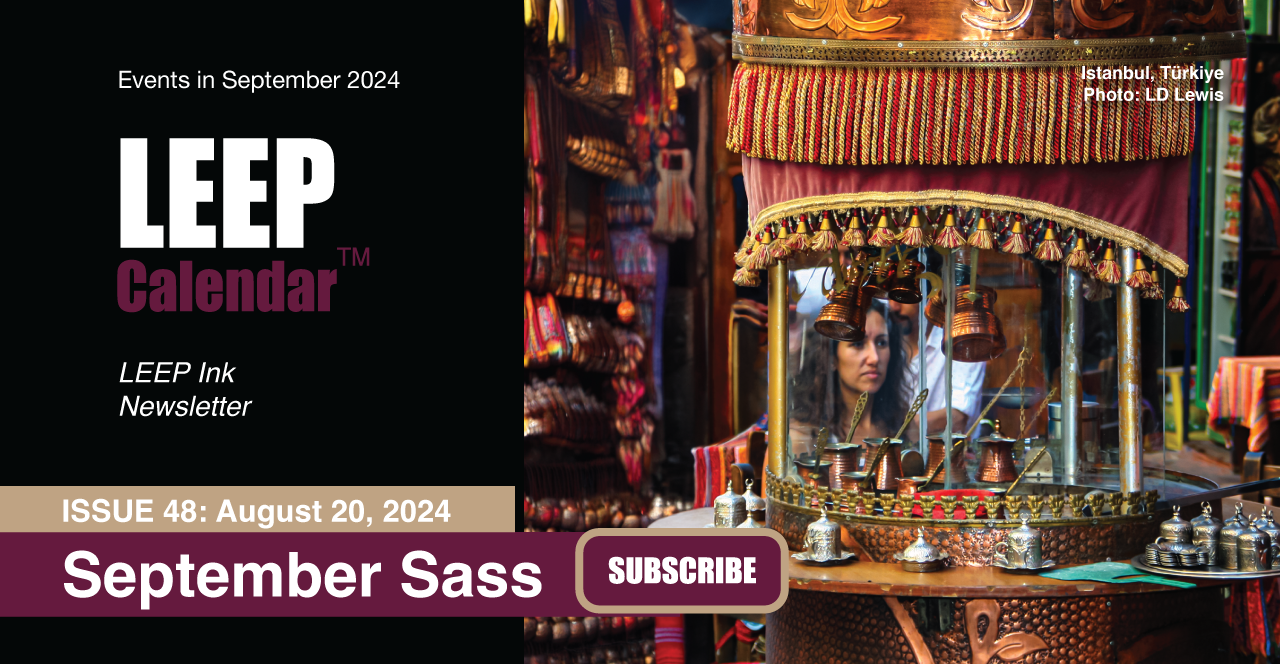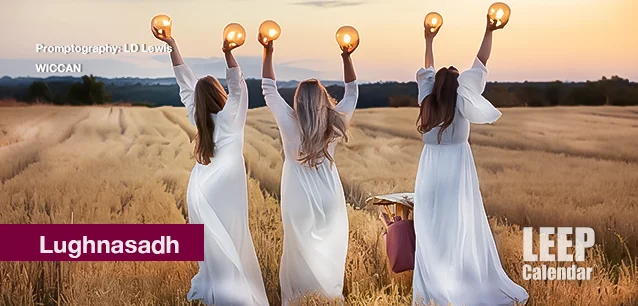 AD
AD
Today is: November 21
Scroll to explore events active on this date.
Additional Events on LEEP
LEEP INK FEATURES

August is Appropos
A toddler playing in the fountain at a park in Santa Fe, New Mexico—Photo LD Lewis. In August, we live through the Dog Days of Summer. It's hot and often humid, and those ...

September is Sassy
Can you hear that sigh of relief from parents worldwide? Yes! September marks the return of students to school, a global phenomenon. Preparations for the ACT and SATs begin earnestly for ...

OOH LA LA, October
October is the busiest month for events, with 5% more happening than in May, the second most eventful month. Sailing enthusiasts will be glued to the finals of this year's Am...
About Lughnasadh
Ends: Aug 01, 2025
DESCRIPTION:
The Wiccan celebration of Lughnasadh marks the year's first harvest, one of the more critical observances in the faith. This day may also go by August Eve, Lammas Eve, Lady Day Eve, or the Feast of Bread.
Lughnasadh is a traditional harvest festival that marks the beginning of the harvest season. It is one of the four major Celtic seasonal festivals, along with Samhain, Imbolc, and Beltane. Its origins trace back to ancient Celtic culture, specifically Ireland, traditionally observed on August 1, or halfway between the summer solstice and autumn equinox. However, some will celebrate it on the Sunday closest to the 1st.
The festival gets its name from Lugh, a prominent deity in Irish mythology. According to the lore, Lugh held the first Lughnasadh festival in honor of his foster-mother Tailtiu, a queen and earth goddess who died from exhaustion after clearing the lands of Ireland for agriculture.
Lughnasadh traditions and customs focus on the grain harvest, with feasting, market fairs, games, and competitions taking center stage. The 'first fruits' tradition dictates that the first crop harvested be celebrated as a meal. The bread made from the harvest is called 'Lammas,' from the Old English phrase.
'hlaf-maesse,' which means 'loaf mass.' Ceremonies and rituals during Lughnasadh seek to ensure the harvest's continued success and the land's fertility. At dusk, bonfires burn to protect and cleanse, with celebrants jumping over the fires in search of blessings and purification.
The Celts consider grain a living entity necessary to sustain life. Its harvest symbolizes the cyclical nature of life, death, and rebirth.
Today, Wicca and Druidism celebrate Lughnasadh as a religious holiday, folding historical and regional traditions with personal spiritual beliefs. Typical means of celebration include rituals, feasting, storytelling, dancing, and presenting offerings to deities and spirits.
VIDEOS
Currently, this event does not have supporting videos.
SUPPORTING DOCUMENTS
Currently, this event does not have supporting documents.
ADDITIONAL IMAGES
Currently, this event does not have supporting images.
Where would you like to go now?
 AD
AD


/footer-logo.svg)
